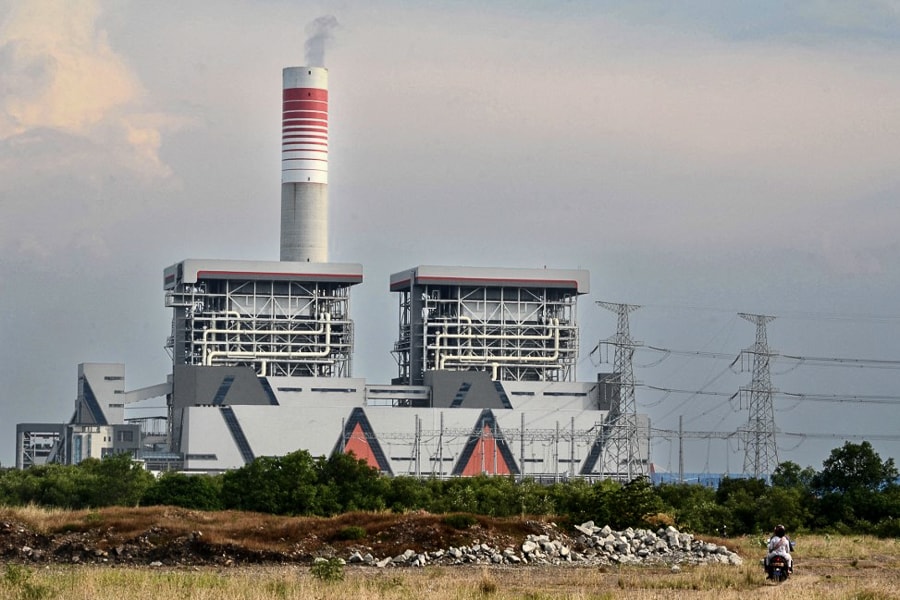
China axes 15 coal plants abroad after Xi pledge, but loopholes remain
The cancelled projects would have generated 12.8 gigawatts of electricity — or the total power generation capacity in Singapore, a new study finds, but a lack of clear rules has allowed Chinese developers to continue to build new coal power projects despite the ban
 A file photo shows the Java 7 power plant in Serang, Banten, Indonesia. China’s plan to fund dozens of foreign coal plants from Zimbabwe to Indonesia is set to produce more emissions than those of major developed nations, threatening global efforts to fight climate change, environmentalists have warned. (Credit: Ronald Siagian / AFP)
A file photo shows the Java 7 power plant in Serang, Banten, Indonesia. China’s plan to fund dozens of foreign coal plants from Zimbabwe to Indonesia is set to produce more emissions than those of major developed nations, threatening global efforts to fight climate change, environmentalists have warned. (Credit: Ronald Siagian / AFP)
Beijing, China: More than a dozen Chinese coal power projects overseas were cancelled after a ban last year on funding such plants, but loopholes could allow 18 others to still go ahead, according to a study published Friday.
China is the world's biggest emitter of the greenhouse gases driving global warming. It has vowed to peak carbon emissions by 2030 and become carbon-neutral by 2060, but these do not include its fossil-fuel investments abroad.
It is also the largest public funder of overseas coal plants, and was planning to build 67 in more than a dozen countries when President Xi Jinping announced a ban on financing "new projects" in September.
Since then, Chinese developers have cancelled 15 overseas coal projects as funding dried up and host countries demanded greener alternatives, a study by the Helsinki-based Centre for Research on Energy and Clean Air (CREA) said.







